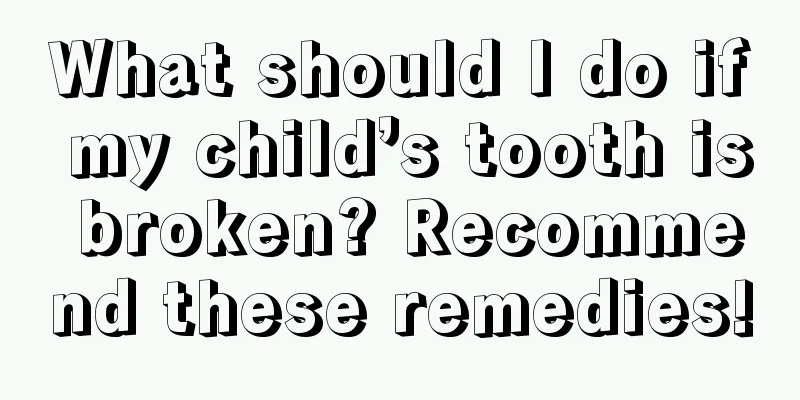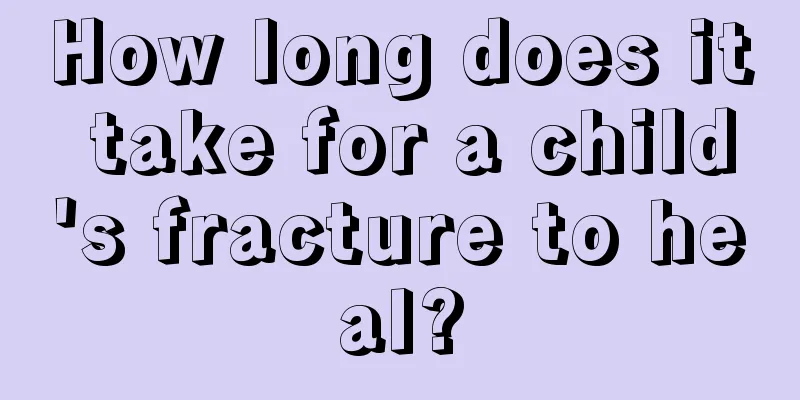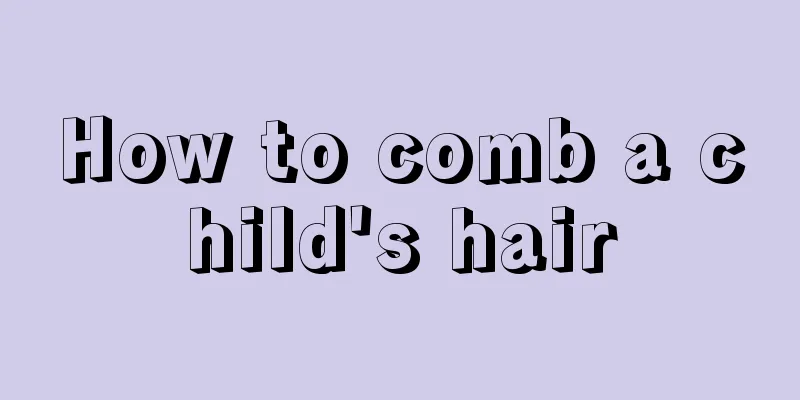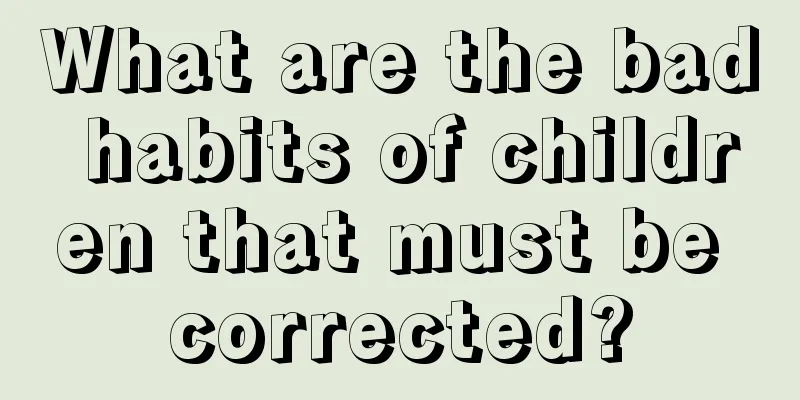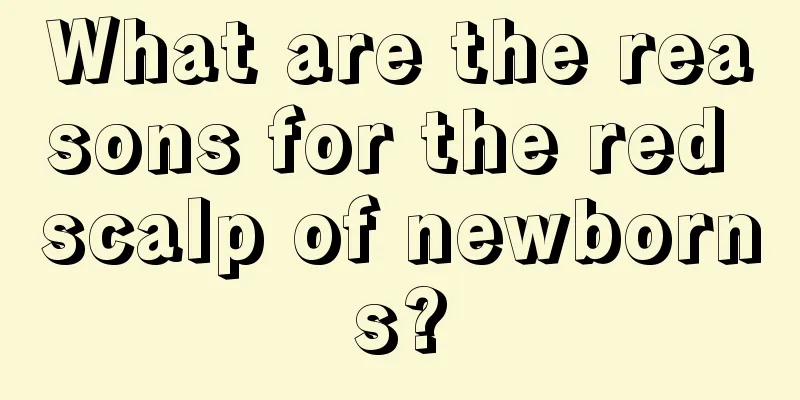Will the baby's hair fall out?

|
The hair of a newborn baby basically exists in the mother's womb and looks quite sparse. Children's hair problems are the same as those of adults. Many parents worry that their baby's hair will fall out, which will look very ugly. Will children experience this problem? Will babies' hair fall out? Let's take a closer look at the situation in this regard. Generally speaking, infant hair loss can be divided into two categories: physiological hair loss and pathological hair loss, with physiological hair loss being the most common. Physiological hair loss is the natural renewal of the neonatal hair four or five months after birth, without any other abnormalities. The characteristic of this type of hair loss is that the hair is black at birth, but gradually turns yellow, and falls out diffusely four or five months after birth. This type of hair loss in infants does not require treatment and most cases will improve naturally. After a baby is born, hair loss often occurs due to changes in the environment. Some parents do not understand this and often think that the baby is sick. If you understand this phenomenon, there is no need to worry. Causes of pathological hair loss include 1 Hair loss caused by calcium deficiency includes occipital baldness, accompanied by decreased blood calcium, increased alkaline phosphatase, night terrors, irritability, etc. Calcium supplementation is required in time. 2 Hair loss caused by immune, metabolic and nutritional problems can be differentially diagnosed by checking thyroid function, parathyroid function, trace elements, calcium, phosphorus, magnesium, and immune function. If malnutrition is suspected, a reasonable diet chart can be developed from a pediatric perspective and the child can be observed for 3 months. After 3 months of balanced nutritional supplementation, if there is no improvement, a detailed growth hormone test can be performed. 3 Hair loss caused by nervous tension and anxiety in childhood. 4 Other causes of hair loss include seborrheic dermatitis, dandruff, fever, drugs, poisoning, genetic syndrome, head trauma, chickenpox, shampoo damage, and perm damage. 5 Hair breakage rather than hair loss. Hair loss in infants is mostly related to nutritional metabolism. Most of them do not have major problems, but only a few have underlying diseases. Children in full-time kindergartens and school age are mostly related to mental factors. Only about 2% have other diseases. Those who initially show symptoms of alopecia areata but eventually show symptoms of hair loss are the ones who are sick. The patient should be observed for 6 months before any major blood tests are done. Alopecia areata is rarely diagnosed the first time, so parents need to be convinced that even if the disease exists, it will not be diagnosed in a day or two. Whether hair can grow back after hair loss depends mainly on whether the hair follicles are atrophied or damaged. The above is an introduction to whether babies’ hair will fall off. I hope it will be helpful to parents. Children may experience hair loss, but parents must be able to correctly distinguish what is normal and what is abnormal, and be decisive when providing timely treatment so as not to leave any regrets for their children. |
<<: What causes astigmatism in babies?
>>: What should I do if my baby's eczema keeps coming back?
Recommend
What should I do if my child has laryngitis and cough?
Pharyngitis is a disease that can occur in people...
How to cure dysentery in children the fastest
Nowadays, both adults and children have a higher ...
How long will it take for baby's eyelids to get better?
For new parents, they all hope that their baby wi...
What should I do if my 11-year-old child is constipated?
Since children generally have weaker resistance a...
3-year-old child's hands and feet peeling
Many parents think that peeling hands and feet on...
Rhinitis sleep apnea
Once rhinitis attacks, patients will experience n...
What should I do if my child has tooth decay?
Recently, some of my mom friends told me that the...
What are the taboos in caring for newborns?
In real life, a newborn refers to a baby who has ...
What defects do left-behind children have when they grow up?
Left-behind children have become a very important...
Bronchial asthma in children
When a child develops bronchial asthma, be sure t...
Why is the palm of a three-year-old baby hot?
Generally speaking, if a three-year-old baby simp...
How to use massage to stop vomiting in children
In daily life, we often see some pediatric massag...
Best treatment for diaper rash in babies
We all know that diaper eczema is the most common...
What to eat when the child has diarrhea and vomits
Children's body resistance is generally very ...
What are the reasons for children to vomit yellow water?
The health of children is of concern to every mot...

